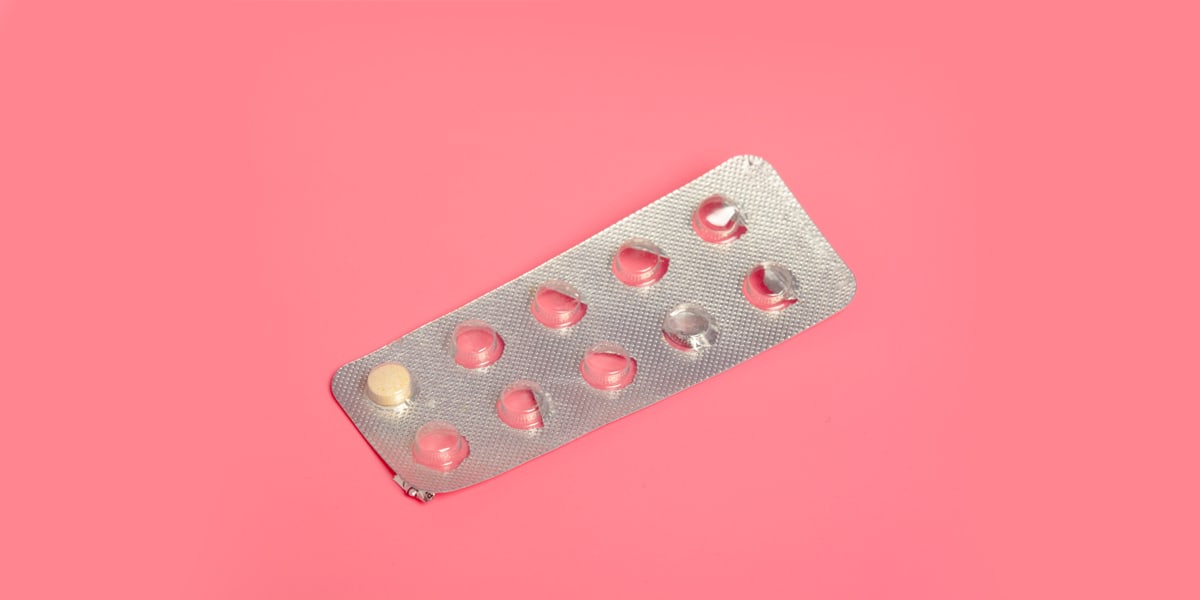These common supplements can seriously mess with your birth control

If you are on hormonal contraception, such as the pill, ring, or patch, you should be aware that — just like any other prescription — there are some medications that can decrease the effectiveness of your birth control. And while your healthcare provider will inform you of possible interactions with other prescription medications, they aren’t as likely to warn you about the over the counter treatments that can have just as serious effects on hormonal birth control.
With prescriptions, you can find out about potential interactions in the information booklet that accompanies your medication, but over the counter supplements do not usually come with the same comprehensive warnings, because they are not as strictly regulated by the Food and Drug Administration. Since these types of interactions are less well known or discussed, people with uteruses are left, yet again, to be proactive in their own health and safety when the medical system fails. Whenever you are prescribed a new medicine, make sure to let your healthcare provider know about not only the prescription medications you are on, but any herbal and vitamin supplements you take regularly as well.
Here’s the lowdown on which supplements you should be careful mixing with hormonal birth control.

First, some myth-busting about antibiotics
Despite previous beliefs that many antibiotics may decrease the effectiveness of hormonal birth control, the only one proven to cause problems is Rifampin, commonly sold as Rifadin or Rimactane, which is used to treat tuberculosis or meningitis. Rifampin therapy for tuberculosis usually lasts 6-9 months, so talk to your healthcare provider about non-hormonal alternatives or backups.
Most antibiotics do not make the pill, patch, or ring less effective. However, if you are taking antibiotics for diarrhea or nausea and vomiting, these symptoms may make it harder to absorb the pill. In this case, check with your health care provider to see if you need to alter your dose, and when in doubt, use a barrier method as a backup.
St. John's Wort
Saint John’s Wort is an herbal remedy used to treat depression, anxiety, and sleep disorders. However, it also stimulates enzymes that increase the breakdown of estrogen in oral contraceptives. This change in dosage, particularly in low-dose pills, can result in breakthrough vaginal bleeding and lowers the amount of hormones necessary for effective pregnancy prevention.
Melatonin
Melatonin is a hormone produced by the pineal gland, and is taken as a supplement to treat sleep disorders. Birth control pills actually increase the amount of melatonin released from the pineal gland, so in combination with a melatonin supplement, the levels of melatonin in the body may become too high. The significant boost of one hormone can disrupt the balance of others, so extra melatonin results in decreased effectiveness of hormonal birth control. Other common side effects of this drug reaction include headaches, dizziness, nausea, and drowsiness.
Activated charcoal
Activated charcoal used to mainly be used to counteract overdoses in hospitals, as its absorptive properties help rid the body of unwanted substances. Its usage has grown in popularity as a means of detoxing after a heavy meal, easing gas, and even avoiding a hangover (none of these uses are scientifically proven, btw). It has been added to skincare and toothpaste, and has popped up on menus in the form of ice cream, lemonade, and cocktails. But activated charcoal’s absorptive quality is also the very reason you should be careful ingesting it. Activated charcoal absorbs whatever is in your stomach, the good and the bad — including your medication. If you ingest activated charcoal soon after taking your birth control, the charcoal could absorb the medication before your body gets a chance to.
However, eating black charcoal ice cream isn’t the same as taking an activated charcoal tablet. You are more at risk if you regularly consume activated charcoal in large doses through supplements or charcoal-heavy cleanses. Talk to your healthcare provider about what’s best for you, and when in doubt, avoid consuming activated charcoal at least 2 hours before and after taking your birth control (and any other medication).
What if I take a supplement that messes with hormonal birth control?
Talk to your healthcare provider about your options. If you want to continue to take a supplement that decreases the effectiveness of hormonal birth control, consider a non-hormonal method, such as the copper IUD, or barrier methods such as condoms or dental dams.




